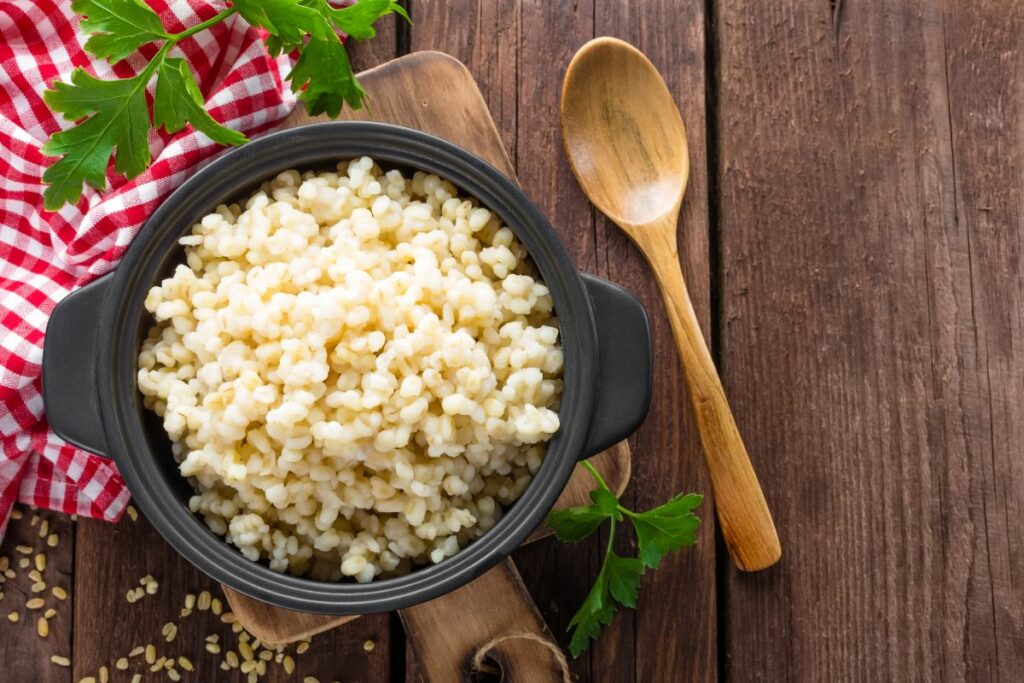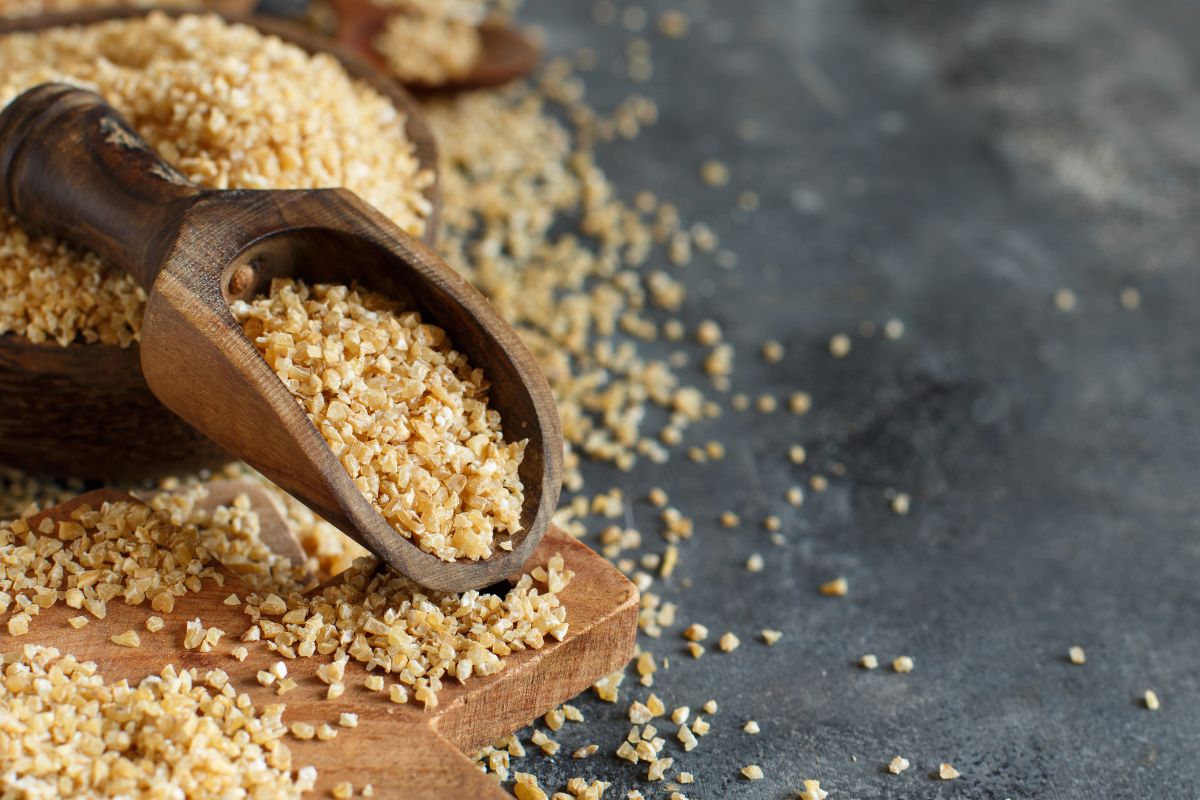Have you ever come across a recipe that asks for bulgur and wondered if you could still consume this whole-grain cereal while sticking to a gluten-free diet?
If so, you have come to the right place.

Despite the fact that many health experts promote this grain as a very healthy food, if you are attempting to steer clear of gluten for reasons related to your health, any grain (and any ingredient, for that matter!) requires careful consideration on your part.
In this article, we will discuss the grain cereal known as bulgur and explain what it is. We will also answer the question, “Is bulgur free of gluten?” to help you determine whether or not including it in your diet would be good.
Bulgur – What is it?
Wheat berries or durum wheat are the two types of wheat that are used in the production of the grain known as bulgur.
The grain known as bulgur is produced by first cooking whole wheat and then milling it into flour. This procedure creates the grain.
It is most commonly used in the cuisines of West Africa and the Mediterranean, though it is becoming more popular in the United States.
The uniquely nutty flavor of bulgur is a result of the process of parboiling the grain, and consumers have the option of purchasing the grain in a number of different grinds, including fine, medium, coarse, and extra course.
In culinary preparations, it is usual practice to substitute other kinds of small grains, such as couscous and quinoa, for the bulgur that the recipe calls for.
Bulgur may be included in a wide range of dishes, such as salads, breakfast dishes, chili, pilafs, and stews. It is most frequently used as a side dish though.
Uses of bulgur
As a result of the tight link it has with rice and couscous, its primary purpose is to serve as a side dish.
On the other hand, when it is in its form of whole wheat, it may be used in a range of different dishes, including salads, pilaf, baked goods, and cereals.
Bulgur grains are a versatile ingredient that can be used in virtually any recipe to bring out the flavor of a variety of nuts.
What Is Gluten?
Gluten is a specific type of protein that is present in the vast majority of items made from wheat.
This particular protein acts as the “glue” that keeps grains like wheat, barley, Kamut, spelt, farro, durum, and bulgur cohesive and maintains their shape. Rye is another grain that benefits from this protein’s “glue” qualities.
It is difficult to eliminate gluten from grain products since gluten is a protein that occurs naturally and is already present in grain in its natural state.
There is no way to get rid of gluten in a meal that already contains gluten.
Is Bulgur Gluten-Free?

Because bulgur is made with wheat, more especially durum wheat, it cannot be considered gluten-free and is not an appropriate addition to a diet that eliminates all sources of gluten.
If you have Celiac disease or are sensitive to gluten, you should steer clear of ingesting this grain.
There is a common misconception that consuming this grain can help contribute to a healthy diet; nevertheless, if you suffer from one of the illnesses listed above, you should avoid eating this grain.
Bulgur Substitutes
If you are a fan of bulgur but have just started following a gluten-free diet, you may be looking for some alternatives to use in the food that you create and the meals that you enjoy the most.
The following are some alternatives to bulgur that you can consider using instead of it in your cooking:
Quinoa
Quinoa lacks gluten and has a gritty texture. Quinoa’s consistency is comparable to that of bulgur.
Because of its adaptability, you may use it in almost every meal in which you would use bulgur. Because of this, it is an excellent substitute for bulgur.
You may add it to your breakfast porridge, soups, salads, or even chili if you want to get some additional bulk and protein from the food you eat.
Rice
Even if rice isn’t exactly the same as bulgur, the compact shape, and general texture could resemble what you’d look for in a dish that included bulgur.
Toasting the rice and choosing a type of rice that already has a more nutty flavor, such as brown or wild rice, will help you achieve a flavor profile that is similar to the taste of bulgur.
Buckwheat
Buckwheat is completely devoid of any and all traces of gluten. It seems to have the look of the grain, but in reality, it is the seed of a fruit.
Even while it might not taste precisely the same as bulgur, it can still be used for the same things. Buckwheat may be used in a wide range of dishes, including stews and soups, due to its adaptability and versatility (Find out What Buckwheat Taste Like Here).
Buckwheat is also very healthy for you. Here are just some of the health benefits:
- Boosts the circulation of the blood
- Reduces blood pressure
- Has a high magnesium content
Summary
Bulgur is not a gluten-free grain, and so like most other gains should be avoided if you are following a gluten-free diet or suffer from Celiac disease.
Luckily there are many alternatives out there that you can use in recipes that call for the use of Bulgur, with buckwheat and rice being just two examples.







